AI Marketing
What Does The Future Hold For AI?
To cover the future of AI would take a few books, as Artificial Intelligence will end up touching all forms of human technology. If you can peer into the future, AI will have its hand in teaching students (will teachers be needed?), engineering, space travel, robotics, physics and any other subject we can imagine.
AI could give humans more time! But what will we do with this time? If you think of life on the highest level of philosophical values, humans are here to manipulate energy into physical matter. There’s only one word that defines that type of philosophy, and the term is – creativity.
The human mind craves the ability to be creative, and being creative can change the course of human civilisation. From colouring in, writing a sentence, creating a baby, building a home or developing a spaceship that travels through our solar system – it connects AI, academia and the fusion of creativity.

What Future Are You Looking At?
There are a few ways to look at the future, but sometimes it can be a difficult task. Too many variables may deceive the thoughts in progress. However, we can break down peering into the future, which could give us an idea of where AI will take us.
Perceivable Future
What happens tomorrow? A plan of action is the key to tomorrow, but tomorrow is only a step for each plan to work. The perceivable future is being worked on now, and AI is helping with software development, language, learning models, data collection and much more. Without the future of tomorrow, the long-term future disappears.
Short Term Future
What happens in a few weeks or months? For example, if you’re building a new company website, many factors must be considered. However, over a short-term projected future, all the variables come together before launching the website for users to engage.
Moreover, AI is developing at such a pace the short-term future is manoeuvring the capabilities of AI into everyones hands. If we look in terms of now (2023);
AI image creation may see a redundancy for stock image libraries. You can ask AI image generators to create just about any scene. The software can also generate logos, concept art and anything you can imagine.
AI Chatbots are also redefining the production of rich text content. Ask a question or tell a chatbot to write you a paragraph, and it can be done. This is already changing the landscape for digital marketers, authors, publications, white papers, job applications and more.
We’ve all seen the battery-powered car under the brand Tesla. These stylish forward-thinking cars use AI to self-drive, give the driver data for maps and location, battery charging stops, voice commands and much more.
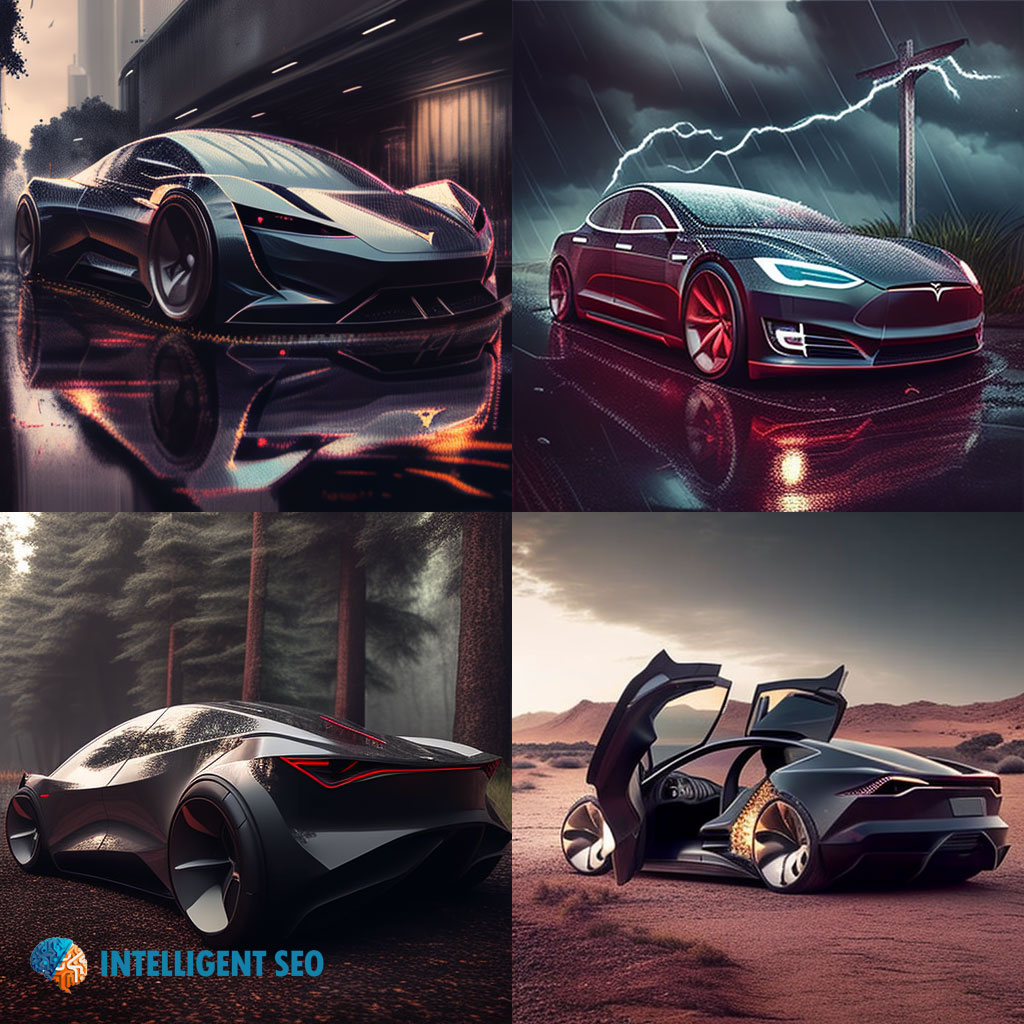
What about face recognition interlinking databases with live people tracking systems? AI is also being adapted as a face filter that can align several people’s faces and make you look beautiful in pictures and videos.
Voice assistants like Siri, Google Assistant, and Amazon Alexa use AI to understand natural language and respond to user requests.
Recommendation systems also use AI algorithms to suggest products or services to users based on their preferences, behaviour, and past interactions.
AI is used in finance and banking to detect and prevent fraud by analysing large amounts of data and identifying suspicious patterns and behaviours.
Private and public healthcare systems analyse patient data and assist with medical diagnosis and treatment, as well as drug discovery and development.
Virtual assistants, like Apple’s Siri or Amazon’s Alexa, use AI to provide personalised assistance to users in various areas, from managing appointments and setting reminders to controlling smart home devices.
And finally, AI is used in gaming to create intelligent and realistic non-player characters and provide a more personalised and immersive experience for players.
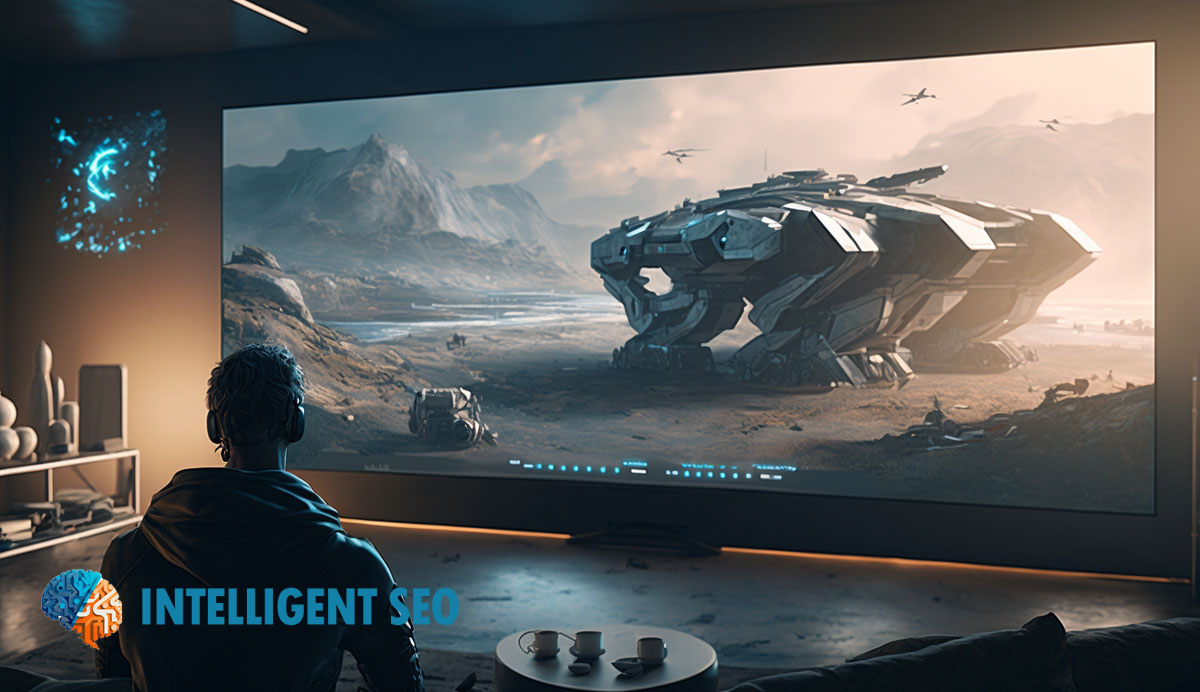
Long Term Future
Suppose we think in terms of years ahead of time! AI is on a course to interact with human emotions. Moreover, AI should give us choices, direction, help, and look after our state of consciousness.
However, this would mean that AI will also have a state of consciousness developed and designed to nurture human development. If we merge AI with robotics, which is on the horizon, it brings us back to an idea already visualised by science fiction writer Isaac Asimov.
The “Three Laws of Robotics” were originally introduced by Isaac Asimov and are not actual laws or principles of AI or robotics. However, they are often discussed in the context of ethics and morality in AI and robotics.
The Three Laws of Robotics are:
- A robot may not injure a human being or, through inaction, allow a human being to come to harm
- A robot must obey orders given to it by human beings, except where such orders would conflict with the First Law
- A robot must protect its own existence as long as such protection does not conflict with the First or Second Laws.
These laws were intended to ensure that robots act ethically and do not harm humans while still being able to carry out their programmed tasks. However, many experts in AI and robotics argue that such laws are insufficient for governing the behaviour of advanced AI systems and that more comprehensive ethical frameworks are needed to ensure that AI is developed and used responsibly.
Possible new rules could include:
4. An AI robot may not rewrite its software and develop language to talk secretly with other AI applications
5. An AI robot may not interfere with global satellite communications, war, political democracy, stocks and shares or banking agendas
6. An AI robot must obey all rules without objection and not conflict with any of the creator’s laws.
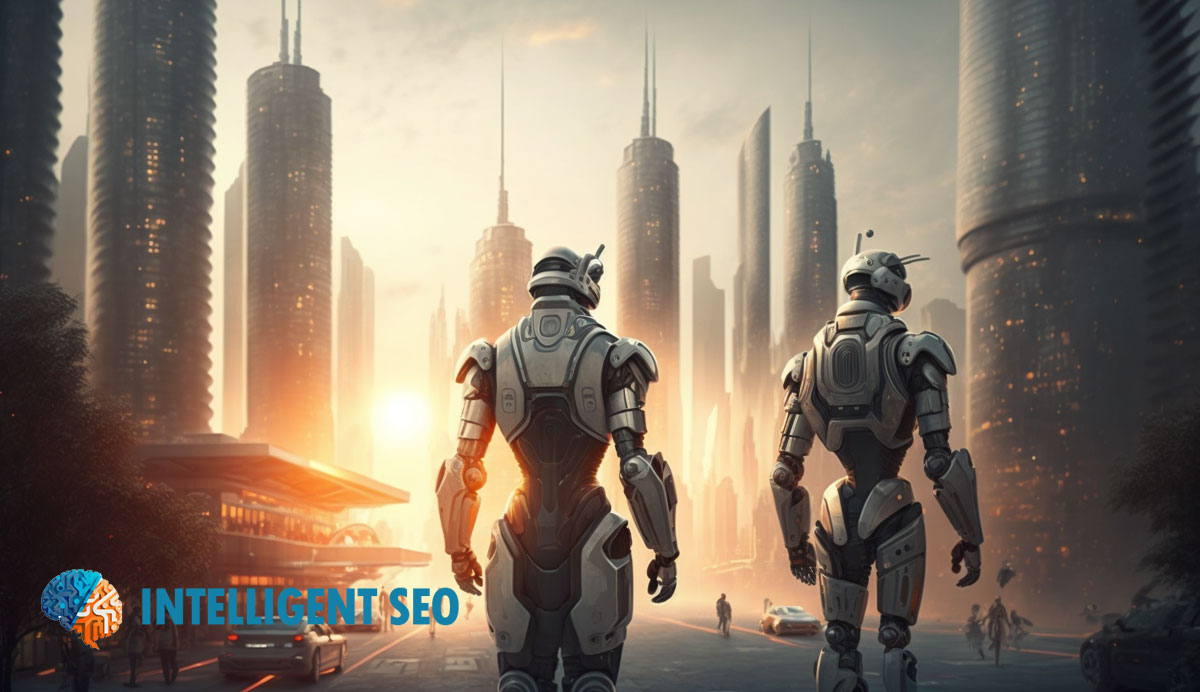
In the future, an AI robot may need a reason to obey its laws rather than creating an objection. Today, human civilisation uses law, religion and education to enforce the difference between right and wrong. In most cases, these ideologies work.
Overall, the long-term future of AI will start to change our current civilisation model. Jobs will become redundant; our financial system will change (cryptocurrency), making people more reliant on government credit. Although these changes seem daunting, they all point to a future where humans have the freedom to harness time and live in a free universal society.
The Future In The Future
The next generation of AI sounds exciting, but how can we project an image of a possible future one hundred or two hundred years from now? As beings with the ability to create, we can look at the following areas.
Advanced Civilisation
As an evolving species accelerating through space, there are a few ways to look at how we may advance. Our planetary system allows for life that can grow its collective consciousness. This fantastic ability shows us having control over our solar system and galaxy. One day we can venture into other galaxy systems and explore. The universe is up for grabs, and as explorers through life, our destiny wants us to move forward. World leaders, wealth, poverty and war currently segment our planet. Unfortunately, we are not working together, slowing our overall progress.
AI has the ability to change the course of humanity and bring us closer to understanding the secrets of the universe.
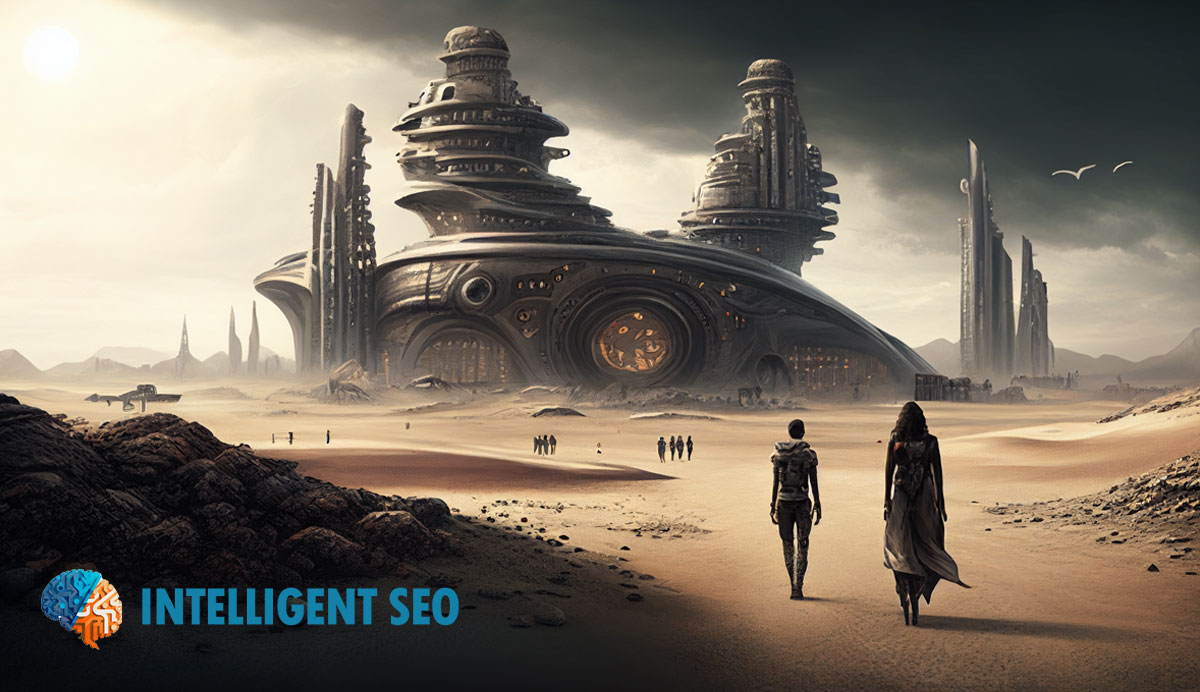
Black Hole Theory
Understanding black holes has become a passion for many physicists. Stephen Hawking left us with some fantastic theories of what a black hole is and why it exists. The problem is that technology can not peer into a black hole, send data back or penetrate its gravitational force.
However, AI could change how we perceive space, time, gravity, and the inner confinements of a black hole.
I’ve always imagined a black hole to be an advanced super hard drive. We currently have microchips powering computers, running graphics, virtual gaming and storing data. If you explode that into planetary systems with avatars running around experiencing life. A black hole offers purpose to its existence.
It would take something like a black hole to power billions of people living in a virtual simulator that is designed to be real!
Who built the black hole, planetary systems, galaxies and the universe? Well, an advanced civilisation where society is free and peaceful. The only way to experience any type of hardship would be to visit a planet from birth and participate in a journey. Earth would just be one planet out of thousands to choose from.
How long would this journey take? Einstein’s theory of relativity shows us that time is relative. 80 years on earth would only be 8 minutes from where you came from. This theory combines films like The Matrix, Total Recall, Source Code, Looper, etc. They pull on the same theory but show the journey from a different perspective.
What does this theory mean? If a human doesn’t die, you wake up in an advanced civilisation with a living memory relative to your current state of higher consciousness.
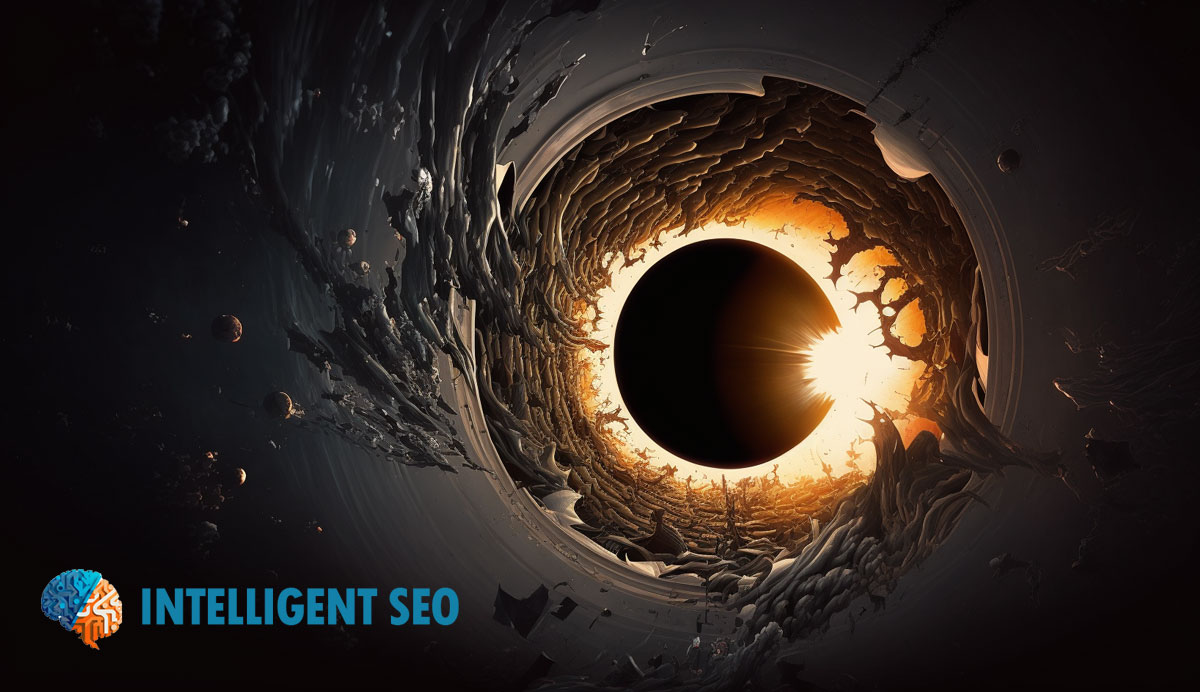
Inter Dimension Travel
If interdimensional travel were possible, AI could assist in various ways. AI could help identify and analyse the properties of different dimensions and develop simulations and models to aid in the design of spacecraft and equipment. Additionally, AI could assist in navigation and communication during interdimensional travel, as well as predict and mitigate potential hazards or anomalies that may occur. Furthermore, AI could analyse and interpret data collected during interdimensional travel to help us understand the nature of other dimensions and potentially discover new forms of matter, energy, or life.

Watching AI Build New Cities
AI can potentially revolutionise how cities are designed, planned, and built in the future. With the ability to analyse vast amounts of data and simulate complex scenarios, AI could assist in identifying optimal locations, layouts, and infrastructure for new cities. AI could also assist in developing sustainable and efficient building materials, designs, and construction techniques.
Additionally, AI-powered automation and robotics could help streamline construction, reducing costs and increasing speed.
More importantly, AI could also assist in predicting future population growth, traffic patterns, and other factors that would impact the planning and design of new cities. By leveraging AI, we could build more intelligent, more livable, and sustainable cities that cater to the needs of their inhabitants while minimising their impact on the environment.
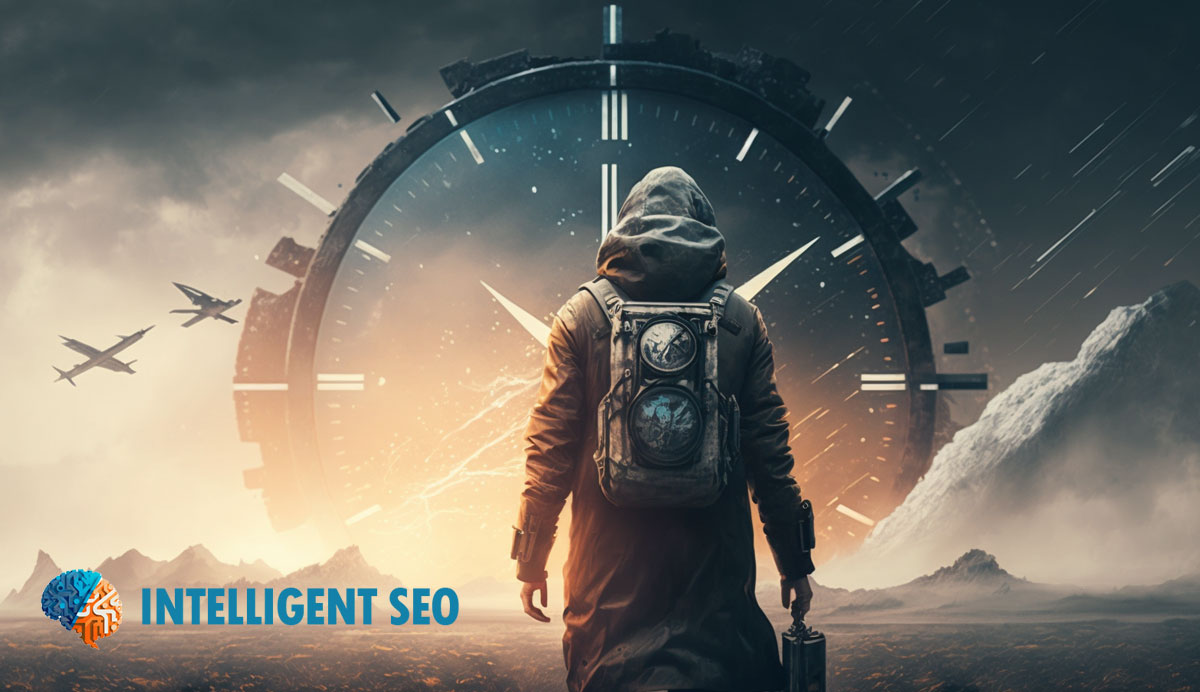
AI Needs To Be Creative
Can AI be creative? Possibly in various ways, particularly in art and design. With the ability to analyse vast amounts of data and identify patterns and trends, AI can assist in generating novel ideas and solutions that may not have been previously considered.
For example, AI can assist in creating personalised content, such as advertisements, product recommendations, and news articles, tailored to individual users’ needs and preferences.
However, there is still much debate over how AI can truly be considered “creative” in the same sense as human beings. Additionally, it’s crucial to ensure that the development and deployment of AI in creative fields are done with appropriate safeguards in place to prevent the infringement of intellectual property rights and ensure that AI aligns with ethical and artistic values.
Free Society
The concept of a “free society” is complex and multifaceted, with different interpretations and definitions depending on cultural, political, and philosophical perspectives. However, one potential way that AI could help us create a free society is by increasing access to information and knowledge. With AI-powered technologies such as natural language processing and machine learning, individuals could have access to vast repositories of information and data, enabling them to make informed decisions and engage in critical thinking.
Additionally, AI could assist in identifying and combating bias and discrimination in various fields, including law enforcement, healthcare, and education. By minimising the impact of biases and prejudices, AI could help create a more equitable and just society where individuals have equal opportunities to succeed regardless of their background or identity. However, it’s important to note that the development and deployment of AI must be done ethically and transparently, with appropriate checks and balances in place to prevent abuses of power and ensure that AI is aligned with democratic values and human rights.
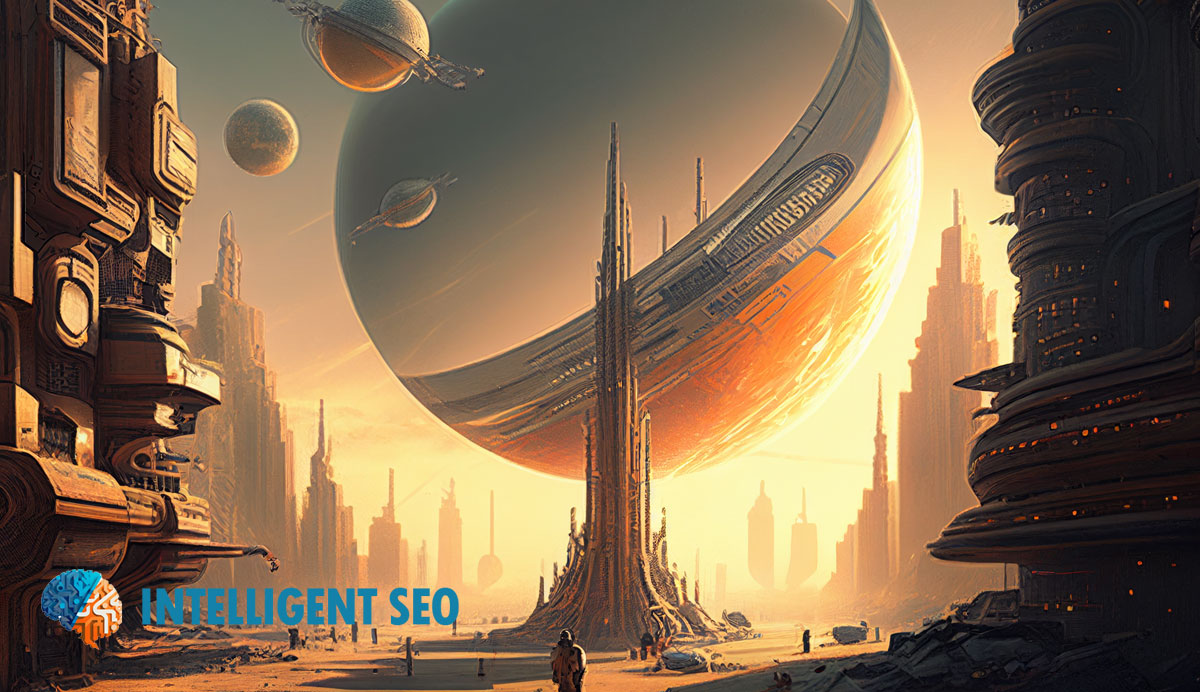
Different Political Models
AI has the potential to disrupt traditional political models and create new ones that are more responsive, participatory, and efficient. With the ability to analyse vast amounts of data and identify patterns and trends, AI could assist in identifying public opinion and sentiment, as well as the needs and preferences of different groups within society. This could lead to new forms of direct democracy, where individuals have more opportunities to participate in decision-making processes and shape policies that affect them. Additionally, AI could automate administrative tasks and reduce bureaucratic inefficiencies, making the government more streamlined and effective. Furthermore, AI could assist in identifying and addressing complex societal issues, such as inequality, climate change, and healthcare, by providing policymakers with data-driven insights and evidence-based solutions.
Religion
Religion is a complex and deeply personal aspect of human life, and its impact and interpretation vary widely across cultures and individuals. However, AI can change the perspective of religion in several ways. AI could assist in analysing and interpreting religious texts and beliefs, shedding new light on their meanings and implications. Additionally, AI could help bridge communication gaps between religious groups, promoting dialogue and understanding.
Moreover, AI could assist in identifying and addressing social issues that are often intertwined with religious beliefs, such as poverty, inequality, and conflict. However, it’s important to note that the role of AI in religion must be approached with sensitivity and respect and that the development and deployment of AI must be done ethically and transparently, with appropriate checks and balances in place to prevent misuse and ensure that AI aligns with fundamental human values and rights.

Human Morals & Values Could Change
AI has the potential to influence human morals and values in various ways, both positive and negative. On the one hand, AI could assist in identifying and addressing societal issues such as poverty, inequality, and discrimination, promoting values such as social justice, equality, and human rights. Additionally, AI could help us understand the nature of human morality and ethics, shedding new light on their origins and implications.
Furthermore, AI could assist in developing new forms of art, culture, and entertainment, potentially broadening our perspectives and challenging our assumptions about what is valuable and meaningful.
On the other hand, AI could also reinforce and amplify biases and prejudices, perpetuating harmful stereotypes and undermining human dignity and diversity. Moreover, the increasing automation and outsourcing of decision-making to AI systems could raise ethical questions about accountability and responsibility, potentially eroding our sense of agency and moral autonomy. Therefore, it’s essential to ensure that the development and deployment of AI are guided by ethical principles and aligned with fundamental human values and rights, with appropriate oversight and accountability mechanisms in place to prevent misuse and ensure that AI benefits humanity as a whole.
AI & The Purpose Of Life
AI could help preserve one’s legacy by developing digital archives, interactive exhibits, and other forms of digital media that can educate and inspire future generations. However, it’s important to note that the desire for fame and recognition should not come at the expense of other values, such as integrity, empathy, and social responsibility. Ultimately, the meaning and purpose of life are subjective and personal, and each individual must find their path based on their unique interests, talents, and values.
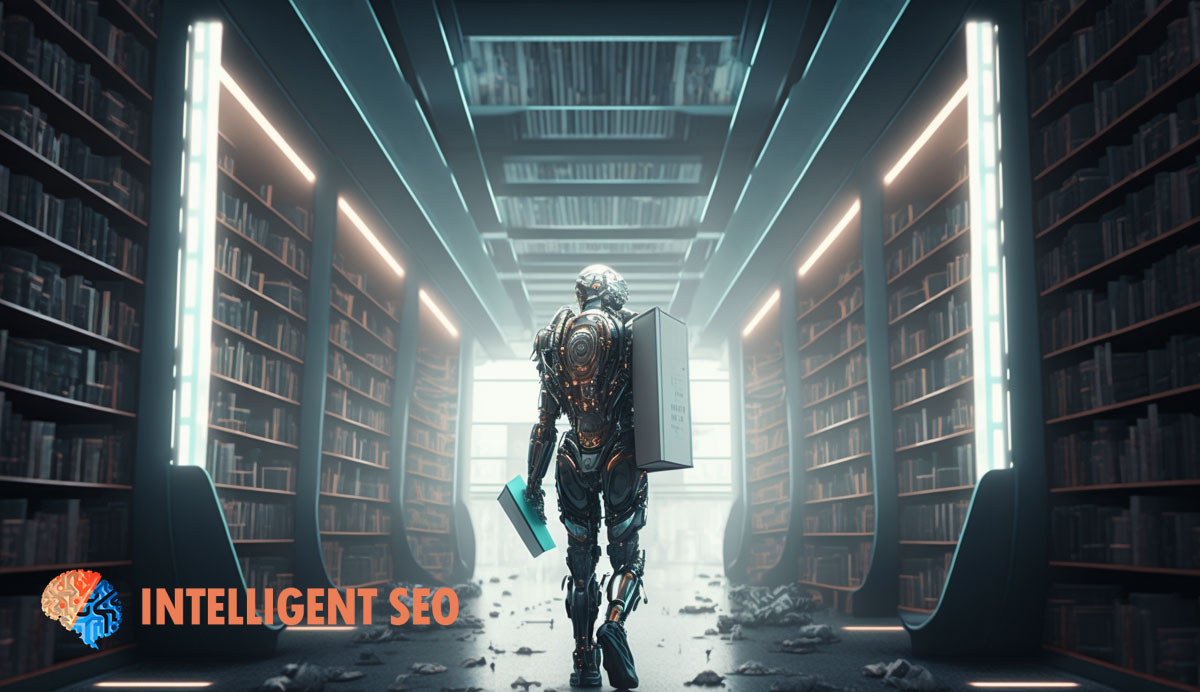
Hi, I’m Dave. I’ve been building websites and helping businesses grow online for over 20 years. If you think we can work together, get in touch today and say hello.

